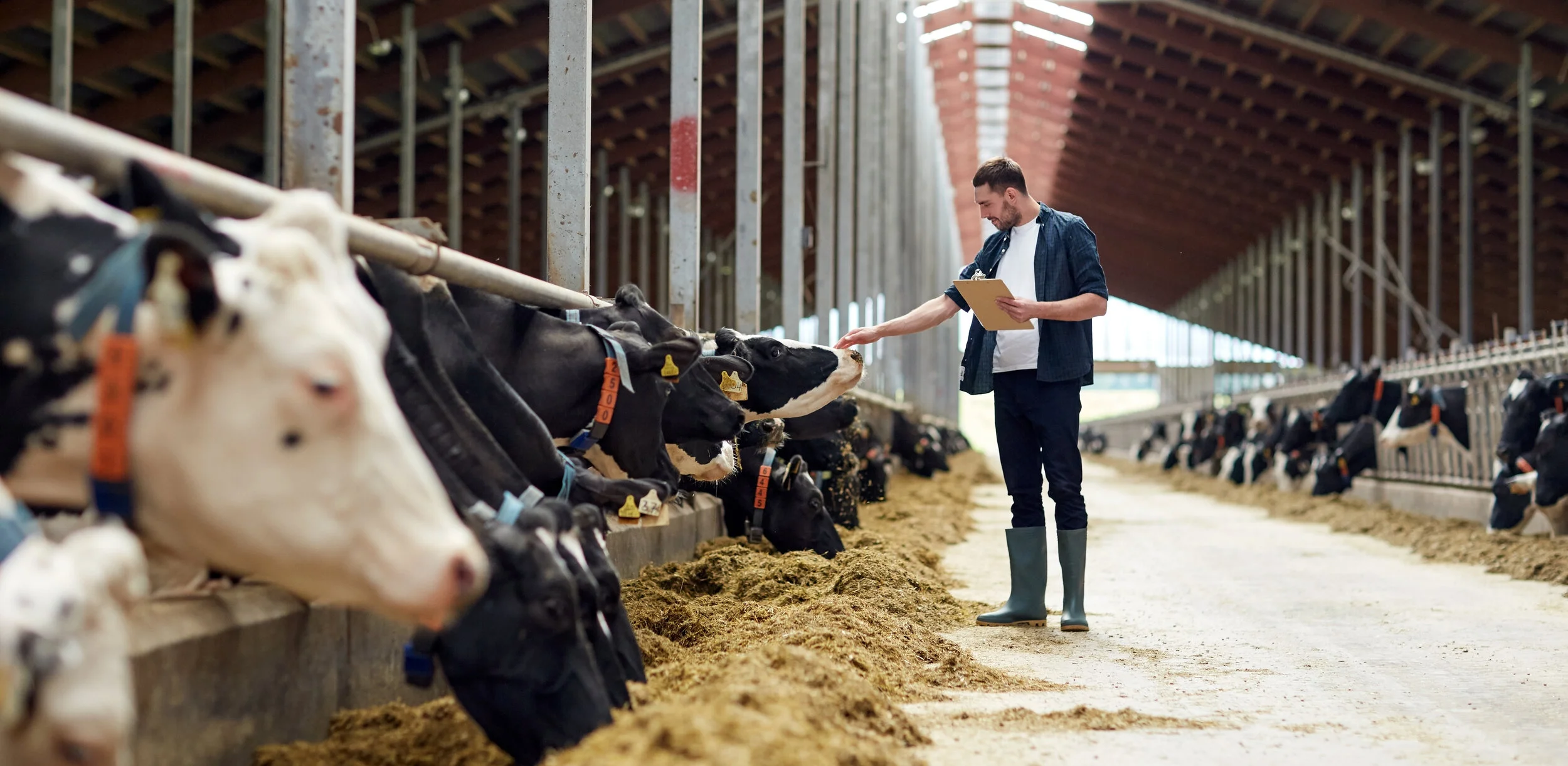Five Examples of Dairy Farmer generosity during COVID-19
Farmers are at the core of our society - they feed and nurture our families; they support our local and global economies and help us keep the fabric that binds our cultures and traditions together. Though farmers represent only 2% of the population of the US, they are an irreplaceable cornerstone to our communities and present in every person’s lives.
Farmers and their families help sustain local shops, markets, and post offices. They take part in parish councils and school governance boards and provide employment on their farms to members of our community. Farmers feed us. With every drop of milk we add to our coffee (or tea) in the morning, or every morsel of food on our plate, we are communing with and benefitting from the work of our farmers.
One of the joys of my work is getting to interact up close and personal with farmers, particularly our dairy farming community. This has changed how I interact with my food and my place in the entire food system. We were all once farmers. Our ancestors have been milking cows for more than 10,000 years. Throughout this time, dairy farmers and their herds have been building blocks of civilization. The farmers and these animals feed us. They have witnessed our ups and downs while holding our hands as we grow throughout history.
I didn’t see COVID-19 coming. Of course, most of us did not. When it first hit, so many things became uncertain for me, for my workplace, and for our farmers. In the initial days, everywhere I looked we were facing roadblocks, and the world seemed to be falling apart. One of the things that kept me going was seeing the resilience and care of our dairy farmers around the world; farmers came forward to remind us that they are here for us, no matter how difficult things got.
From the United States and Canada to Colombia, New Zealand, and Nigeria, here are five comforting reminders of how dairy farmers care for all of us and how critical they are in our communities.
Canada
Dairy farmer Crosbie William chose to donate his excess of milk instead of dumping it. “Helping out is the right thing to do," he said in an interview with the CBC.
Crosbie alongside the Dairy Farmers of Newfoundland and Labrador, has donated 35,000 litres of excess milk to food banks around the province.
“Helping out is the right thing to do.”
United States
In Wisconsin, The Hunger Task Force, Dairy Farmers of Wisconsin, and the Wisconsin Department of Agriculture, Trade and Consumer Protection announced a plan to buy surplus milk and get it to families in need.
Hunger Task Force committed $1 million to the project called the Wisconsin Dairy Recovery Program.
The program intends to buy milk from dairy farmers whose milk would otherwise be dumped and send it for processing. Thousands of gallons of milk will be distributed for free to local food pantries in Wisconsin.
Colombia
In Colombia, the National Association of Milk Producers (NAMP) recently launched an initiative to promote solidarity and have partnered with the national pasteurizing company, Gloria Colombia, and dairy cooperatives to donate milk to more than 2000 at-risk families in the capital, Bogota.
Dairy farmers in Colombia are invited to donate between 1 to 4% of the milk they produce every two weeks. The milk is delivered to Gloria Colombia who has agreed to donate the processing of the milk and its packaging. Milk will be distributed by local authorities.
New Zealand
Dairy farmers Wayne Langford and Siobhan O'Malley have launched a campaign to bring meat to low-income people around the country. The Meat the Need programme donates stock for slaughter to be sent to city missions and food banks across New Zealand.
They hope to have about 1,000 animals donated for slaughter and processed by the end of the year.
“We've set up a system where farmers can donate easily, and send them through their processor...From there, they'll be packaged and graded in 500 gramme packs of mince for city missions and food banks throughout New Zealand" Langford said in an interview with RNZ
“These are challenging times; this pandemic is testing our care for each other, and we must rise up to the challenge.”
Nigeria
More than 100,000 at-risk Nigerian families will be receiving a relief package of dairy products from FrieslandCampina WAMCO Nigeria. The company has made a donation from its brand of dairy products, Peak and Three Crowns milk.
“These are challenging times; this pandemic is testing our care for each other, and we must rise up to the challenge,” said Ben Langat, managing director of FrieslandCampina WAMCO in an interview with Dairy Reporter.
---
We are living in unprecedented times. We are all building stories throughout these moments to tell our families and friends once we are reunited. Let some of the stories come from the farm, from the place we all started from, and next time you see a dairy farmer remember: they are your allies. They are the people behind every food on your plate. They are incredible role models for resilience and care in challenging times. To all our farmers, thank you.






